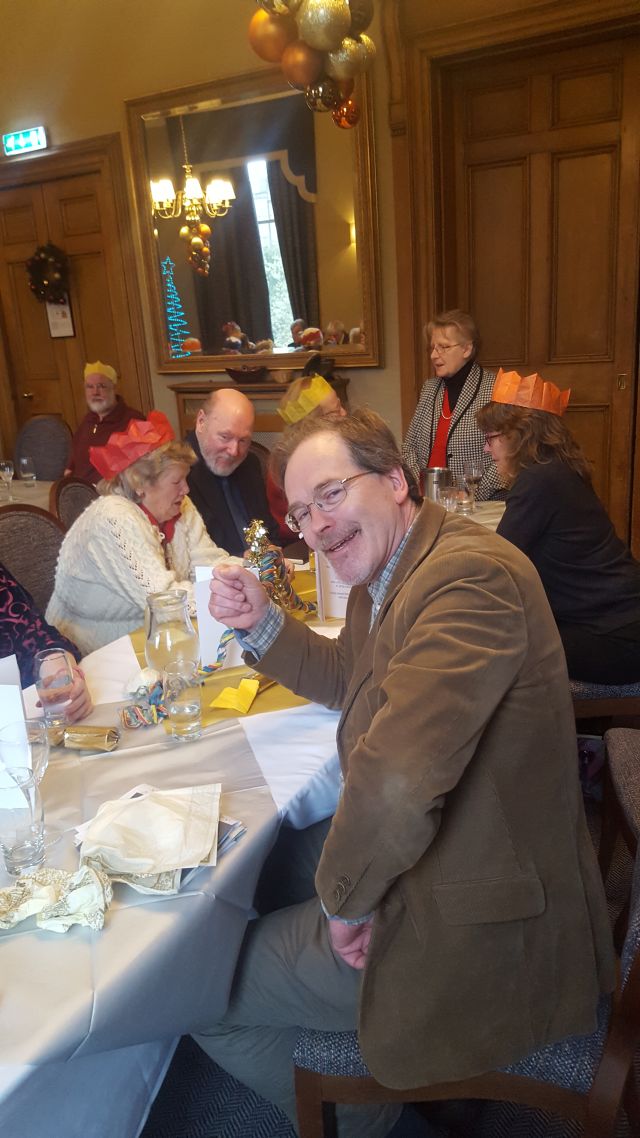
Sacred Scotland : Land and People
That Scotland is a territory with whose land our spiritual connection is millennia old was first brought home to Donald when in 1993 he was asked to help organise events for the 900th anniversary of St Margaret of Scotland. He came across so many places professing an enthusiasm for their Celtic tradition that they practically formed into a route around the country, and in 1997 he was celebrating anniversaries of Columbus and Ninian.
Our country is blessed with thousands of local traditions concerning wells, chapels, hilltops and islands, which prompted Donald to explore them by walking the old routes, which he has been doing for 25 years. His Pilgrim Guide to Scotland looks at each region, finding differences between the traditions of say Magnus and Cuthbert and noting the varying role of female saints. People often say that they don’t have faith while venerating these places, and it became clear that the significance of some long predates Christianity, stretching back to the Stone Age. People regard say standing stones as though they are seeking a contemporary spiritual experience, a need that seems to be innate in our very DNA. The last century’s cultural renaissance of Scotland has been helped by a recognition of this spirituality among artists who professed no formal religiosity, among then Norman McCaig who saw himself not the landowner as the possessor of the land, Hugh MacDiarmid who was in awe at his connection with the cosmos and Nan Shepherd who celebrated the living mountain with her 1930s account of hill burns. However we cannot contemplate the landscape without having regard to those who lived there, and there is no substitute for visiting the actual places – hence his exploration with social historian Elspeth Turner of the dales that make up Tweeddale, for the valleys of the Manor and Lyne, Upper Tweeddale, Wedale, Yarrow, Leader and Teviot are all different with contrasting cultures.
Tom Devine’s “The Scottish Clearances” is a milestone because it provides a national story for Scotland, avoiding a separate focus on the Highlands which have sometimes been oversentimentally treated but taking the theme from the Lowland and Borders agricultural improvers to the post-Culloden subjugation in the north. In exploring uses made of the land it is fundamental to realise that the idea of people staying put until the twentieth-century wars is a myth : moving to find work is a feature of all history. The difference with the past is that people were left exposed to change by the lack of any political process to protect them from the excesses of landlords, and the privatisation of common land was associated with some disgraceful chapters. Powerful factors of inheritance, identity and common purpose have brought us to where we are, but in recent years with domination of the headlines by Brexit and by “fake news” there has been a decline in the honesty of our national conversation which has been captured in Donald's “Year of Sham”.
It is fashionable for Scots to think that we are in some way exempt from the malaise, but a report by MSPs has exposed the flaws of our devolution settlement, and despite our fondness for believing that Ireland has nothing to do with us we are up to our necks in what has happened there. Indeed the last time that things were so serious was in the Edwardian years when the combination of Irish nationalism, suffragette protest and industrial strife made it almost a relief that we embarked on a war which was expected to be over by Christmas.
Whatever the outcomes, it is clear that the exigencies of Brexit are more about the divisions in the Conservative Party than about the national need, and with inequality and poverty the underlying experiences of our time a sign of how much we have become distracted came with the visit of UN Special Rapporteur on extreme poverty and human rights Philip Alston who last month said that for almost half of the UK’s children to be poor today is "not just a disgrace, but a social calamity and an economic disaster, all rolled into one", the government's approach to poverty is not guided by economics but "a commitment to achieving radical social re-engineering" and it should adopt policies that ensure the poor do not have to shoulder the largest share of the ongoing financial burden to the nation arising from Brexit. In these challenging times it is our integral sense of who we are that gives us the strength to respond, and that is tied to our sense of inspiration from the landscapes to which we have fallen heir.